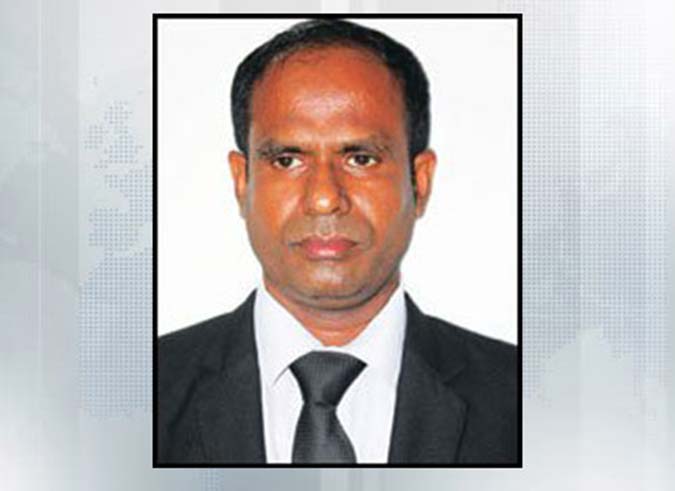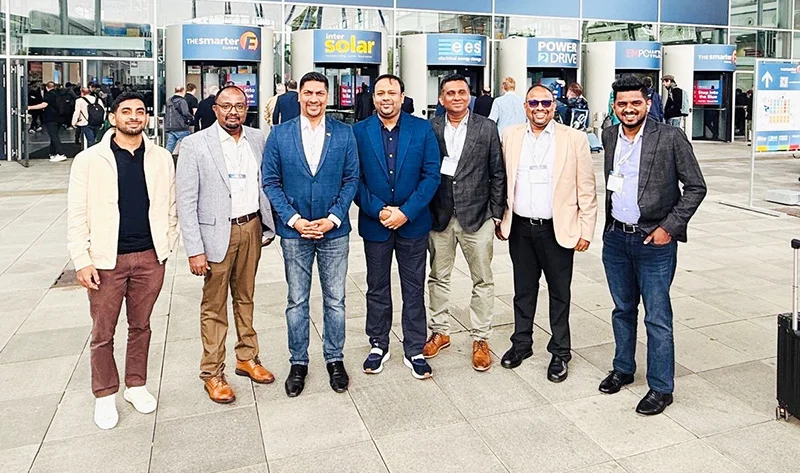Business
SL turning blind eye on lead poisoning in occupational environments – CEJ

By Ifham Nizam
Lead poisoning in the occupational environment is glaringly ignored in Sri Lanka. The authorities should take immediate steps to introduce health screen facilities for informal sector workers, especially those engaged in occupations with a high exposure risk, for, prevention is better than cure, the Centre for Environmental Justice (CEJ) yesterday warned while welcoming International Lead Poisoning Prevention Week of Action – 2023.
CEJ Executive Director, Dilena Pathragoda said, however, that compared to many countries Sri Lanka has a good position on lead content in paint by having most paints in the market recording below 90 ppm, the standard recommended by the WHO.
Pathragoda added; “This was a result of long-term research, advocacy, and awareness carried out by the Centre for Environmental Justice. But, on the other hand, there are several paint types in the market today that are not necessarily included in the legal categorization of paints, such as, board paint, fabric paint, wood paint and roofing paint. Therefore, we recommend their recognition in the law.
“However, those engaged in battery manufacturing and recycling, scrap collectors and those who handle electronic waste and dismantle them for resource recovery, personnel involved in demolition, renovation, automobile/ radiator repair, plastic/ glass manufacturing, iron/ steel works, welding/soldering, road construction, lead smelting, propeller engine, aircraft maintenance, are vulnerable to lead exposure.
“To reduce lead poisoning there should be legal provisions and systematic implementation processes in place for these workplaces.
“Lead is a heavy metal as well as a known toxic. According to the WHO, lead exposure is estimated to account for 21.7 million years lost due to disability and death (disability-adjusted life years, or DALYs) worldwide. Around 1 million people die from lead poisoning while millions more, including children, are exposed to various diseases resulting from lead poisoning. According to UNICEF at least 1 out of 3 children contains blood lead exceeding 5 µg/dl (micrograms per deciliter), which could potentially lead to neurological impacts, such as lowered IQ, impaired learning ability, and other health issues, such as, anemia, hypertension, immunotoxicity and toxicity to the reproductive organs.
“The WHO, along with the United Nations Environment Programme, has announced the International Lead Poisoning Prevention Week of Action, to be held in the last week of October every year. In 2023, it falls between 22nd and 28th October, marking the 11th year of this annual endeavor, which was launched in 2013. It was initiated with the aim of raising awareness among the public, governments, businesses and all stakeholders related to sources of lead exposure and for the purpose of taking preventive measures.
“Within the Sri Lankan context, sources of lead exposure could be lead in solvent-based paints, plastic or rubber toys contaminated with lead or toys painted with lead-contaminated paint, porcelain products, school equipment, beauty products and recycling of lead-acid batteries or car batteries as well as other electronic waste (E-Waste).”
“According to the Occupational Safety and Health Administration (OSHA) guidelines, the permissible exposure limit (PEL) for lead is 50 µg/m3 (micrograms per cubic meter) of lead over an eight-hour time-weighted-average for all employees. But, does Sri Lanka maintain this standard?” asks Chalani Rubesinghe, Project Planning and Management Officer, CEJ.
“No data is to be found in the Sri Lankan context of the average blood lead level of our informal sector workers. The occupational exposure creates pathways for exposure in children as lead-contaminated clothes and soil lead to secondary exposure. Therefore, it is important that we pay attention to both occupational and environmental exposure pathways of lead, she added.
Business
World Bank may convert infrastructure loans into tradable assets

A game-changer for Sri Lanka’s capital market
As the global community convened for the World Bank Group’s 2025 Spring Meetings under the timely theme “Jobs: The Path to Prosperity,” one message stood out: prosperity in the developing world depends not only on physical infrastructure but also on strong financial systems.
Among the influential voices at this year’s gathering was Douglas L. Peterson, Special Advisor to S&P Global and a longstanding advocate of resilient market economies.
Drawing from a decade-long tenure as CEO of S&P Global, Peterson delivered key insights that resonate deeply with the challenges and opportunities facing emerging economies such as Sri Lanka.
Peterson stressed that while global capital is abundant, it doesn’t move indiscriminately. “It follows signals, namely, data, transparency, regulatory certainty, labour and market stability.”
“When investors look to deploy capital in developing markets, they’re seeking a solid financial infrastructure,” Peterson said. “That includes reliable data, transparent pricing mechanisms, independent credit rating agencies, and clearly defined bankruptcy laws.”
These factors may not make headlines, but Peterson underscored their essential role.
“Financial infrastructure enables confidence, and confidence attracts investment,” he said.
A key initiative Peterson is championing in collaboration with the World Bank is titled ‘Originate to Distribute’, a structured finance approach where loans are created by institutions like the World Bank but sold to private investors.
Traditionally, loans from development banks remain on their balance sheets for decades. This initiative proposes standardising and structuring such loans so that private investors can purchase, pool, and trade them – essentially converting infrastructure loans into a new, tradable asset class.
“This is about creating velocity and scale,” Peterson said. “If the World Bank can originate loans and distribute them to the private sector, every dollar stretches further. It helps close the multi-trillion-dollar infrastructure investment gap.”
For countries like Sri Lanka, where public finances are under pressure, such a model could unlock significant private capital provided the regulatory environment and financial infrastructure are prepared to support it.
In alignment with the World Bank’s focus on job creation, Peterson prioritised five sectors he believes are pivotal for employment growth in developing nations: infrastructure (both physical and digital), agri-business, healthcare, tourism, and manufacturing. The common thread across all these sectors, he asserted, is infrastructure.
“Build an airport and you get hotels, transport services and even carbon savings,” Peterson said. “A bridge not only connects communities but also cuts costs, travel time, and emissions.”
According to Peterson, infrastructure investment yields a multiplier effect, often generating an additional $1.40 to $1.60 for every dollar spent. It also catalyses other industries. Manufacturing depends on roads and ports; tourism needs transport and energy; agriculture requires logistics and storage; and healthcare relies on reliable access and communication systems.
Peterson’s reflections also touched on a more structural issue that Sri Lanka is currently facing; the need to develop robust domestic capital markets. He emphasised moving beyond a banking-dominated financial system toward one that includes institutional investors like insurance companies and pension funds.
“These institutions become long-term investors,” he noted. “They form the foundation for sustainable infrastructure investment. Homegrown capital reduces reliance on external debt and increases financial resilience.”
Peterson’s remarks serve as a timely reminder as job creation and long-term prosperity in Sri Lanka will not come through piecemeal efforts. Instead, they require coordinated investments in both physical and financial infrastructure, from better roads and ports to regulatory frameworks that inspire investor confidence.
Unlocking private capital through trust, transparency, and smart financial engineering is the way forward. And as leaders like Peterson have shown, the tools and models already exist. It is now up to policymakers and financial leaders in Sri Lanka to ensure Sri Lanka is ready to embrace them.
Douglas L. Peterson currently serves on the board of the UN Global Compact and was formerly CEO of S&P Global, where he expanded the company’s market capitalisation from $16 billion to over $150 billion. He also led the G7 task force on sustainable finance in 2021.
By Sanath Nanayakkare
Business
AHK Sri Lanka facilitates business delegation to Intersolar Europe 2025

The Delegation of German Industry and Commerce in Sri Lanka (AHK Sri Lanka) successfully organized a visitor delegation to Intersolar Europe 2025, held from 7 – 9 May in Munich, Germany. Recognized globally as one of the most significant and comprehensive trade fairs dedicated to the solar industry, Intersolar serves as a premier platform for showcasing the latest innovations in renewable energy and sustainable technologies.
The Sri Lankan delegation comprised senior representatives from prominent companies in the sector, including Mega Solar, Micro PC Systems, Eco Solar Rays, and Puwakaramba Building Solutions, reflecting the country’s growing commitment to advancing renewable energy solutions.
The primary objective of this visit was to provide Sri Lankan companies direct access to the latest developments in solar technology, including sustainable energy solutions, energy storage systems, e-mobility, floating solar applications, agrivoltaics and recycling solutions. By connecting local enterprises with cutting-edge technologies and global industry leaders, AHK Sri Lanka aims to facilitate the adoption of modern energy solutions in Sri Lanka and support the nation’s broader transition to a more sustainable and energy-secure future.
A key highlight of the delegation’s agenda was a strategic meeting with the organizers of Intersolar Europe. This engagement provided valuable insights into the exhibition’s future vision and fostered discussions on potential collaboration opportunities between German and Sri Lankan stakeholders in the renewable energy sector.
Further amplifying the value of the delegation, AHK Sri Lanka coordinated over 25 tailored B2B meetings between Sri Lankan companies and German/European industry counterparts. These curated matchmaking sessions enabled participants to explore commercial opportunities, initiate technical partnerships, and lay the groundwork for future investments and joint ventures.
Business
Prime Group appoints Umaria Sinhawansa as Global Brand Ambassador

Prime Group, Sri Lanka’s leading real estate brand with a 30-year legacy and international branches in Australia and Dubai, has named celebrated Sri Lankan music icon Umaria Sinhawansa as its Global Brand Ambassador. This partnership unites two Sri Lankan powerhouses to showcase local talent and excellence worldwide.
The collaboration aims to strengthen Prime Group’s global expansion while promoting Sri Lankan culture. Umaria, who bought her first property from Prime Group a decade ago, expressed pride in representing the brand. Prime Group’s Co-Chairperson, Sandamini Perera, highlighted Umaria’s embodiment of Sri Lankan heritage and global appeal, aligning with their mission to elevate the country’s real estate innovation.
Together, they aim to inspire trust, connect with international markets, and celebrate Sri Lanka’s cultural richness on a global scale.
-

 Features4 days ago
Features4 days agoSAITM Graduates Overcome Adversity, Excel Despite Challenges
-

 News4 days ago
News4 days agoDestined to be pope:Brother says Leo XIV always wanted to be a priest
-

 Sports4 days ago
Sports4 days agoASBC Asian U22 and Youth Boxing Championships from Monday
-

 Opinion4 days ago
Opinion4 days agoDrs. Navaratnam’s consultation fee three rupees NOT Rs. 300
-

 Foreign News5 days ago
Foreign News5 days agoMexico sues Google over ‘Gulf of America’ name change
-

 Features3 days ago
Features3 days agoChampioning Geckos, Conservation, and Cross-Disciplinary Research in Sri Lanka
-

 Business4 days ago
Business4 days agoDilmah – HSBC future writers festival attracts 150+ entries
-

 Business4 days ago
Business4 days agoBloom Hills Holdings wins Gold for Edexcel and Cambridge Education












